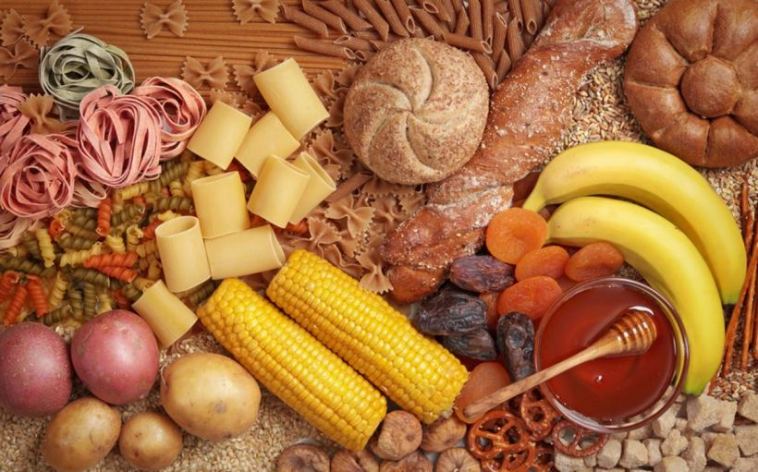- Like
- SHARE
- Digg
- Del
- Tumblr
- VKontakte
- Flattr
- Buffer
- Love This
- Save
- Odnoklassniki
- Meneame
- Blogger
- Amazon
- Yahoo Mail
- Gmail
- AOL
- Newsvine
- HackerNews
- Evernote
- MySpace
- Mail.ru
- Viadeo
- Line
- Comments
- Yummly
- SMS
- Viber
- Telegram
- JOIN
- Skype
- Facebook Messenger
- Kakao
- LiveJournal
- Yammer
- Edgar
- Fintel
- Mix
- Instapaper
- Copy Link
Introduction
All combat sports, when practiced daily, require a nutrient rich diet. Boxing is an intense sport that takes a lot of physical energy. You need more nutrients for gaining energy during your boxing training.
Proper nutrition will help strengthen your body, improve the recovery process, and will hike up your boxing game.
The ideal meal of a boxing athlete must:
- Give high energy during your training
- Provide nutrients to your body that promotes weight gain & muscle building
- Be low in fat, so your body won’t be trained during digestion
There is no such diet plan that works well for everyone. Every human has unique & different body needs, that mainly depends on their lifestyle and fitness level.
For example, one popular and highly misunderstood diet is the “Low-Carb” meal. Cutting carbs provides positive results to many people, however, mostly those results don’t last, and that path is too difficult to be continued for the long term.
Let’s begin with understanding what carbs are, what they do to our bodies, and why fighters need them.
What are Carbohydrates?
Carbohydrates commonly known as carbs are one of the three macronutrients needed by the human body to function properly.
Carbs are commonly found in foods & drinks. They are the primary fuel source used by the human body to function properly.
Other macronutrients: proteins & fats are also converted into energy, by carbs are your body’s common & preferred fuel source.
In the food pyramid, carbohydrates are indicated as the biggest and most important food layer at the bottom. They are an essential energy source. Your survival depends on their intake.
Hiking up your carbs proportional to your training intensity will level up your boxing game. Consuming them at strategic times with your training makes you an ultimate champion.
How Does the Body Process Carbohydrates?
Carbohydrates are broken down into a form of glucose known as “blood sugar.” The human body uses glucose as a fuel source for producing energy.
Some parts of carbs we take convert to glucose immediately while others get converted into glycogen & get stored in your muscle tissues & liver.
Glycogen acts as a backup, it ensures that some of the fuel is stored in your body. It is automatically consumed by your body when your glucose levels drop.
Glycogen also allows you to perform extra rounds when you indulge yourself in any physical challenge. Foods & drinks have 3 types of carbohydrates in them: starches, sugars & fiber.
Simple Carbohydrates
They are present naturally as simple sugars & mainly found in fruits & milk. Simple carbohydrates are of two following types:
Monosaccharide: Fructose & Dextrose (mono = one; Comprise of single sugar molecule)
- Fructose – It is known as fruit sugar & has a glycemic index of 11 for a portion of 25-grams that means it will not be digested fastly & will not raise the insulin level that is required after your intense boxing training session in which you throw uncountable back to back punches in your boxing gloves. Fructose can’t be directly turned in the muscle glycogen & can’t be absorbed into your bloodstream directly. It has to travel via the liver first for the breakdown of the complex glucose chain.
- Dextrose – Commonly referred to as glucose with a glycemic index of 96 for portions of 50-gram. It is one of the common carbs choices that boxers eat after their training session. But they can cause inverse results for some people causing a spillover. Dextrose is more an individual post-workout meal choice.
Complex Carbohydrates
- Maltodextrin – This complex carb is extracted from corn, potato starch, and rice but has a smaller molecular chain. It has loosely bonded glucose molecules & like dextrose, it can be directly absorbed by the gut. Maltodextrin raises your blood sugar & insulin level the same as dextrose. But before it is used by the body, and converted into glucose molecules maltodextrin first passes by the liver. It causes less glycogen replenishment than dextrose & results in lesser fat gain. Because of the slow replenishment, it doesn’t pose any risk of a spike in your insulin & blood sugar levels. A portion of 50:50 dextrose and maltodextrin is an ideal post-workout meal that can provide you the best results.
Disaccharides
- Sucrose – Commonly referred to as table sugar & with a single molecule of glucose & fructose. It rates 60 in the glycemic index of 25 grams portion.
- Lactose – Commonly referred to as milk sugar. Mainly found in milk & milk products such as cheese, butter, etc. Has the rating of 48 for a portion of 25-gram on the glycemic index. These aren’t a good choice & lactose might not suit people who are lactose intolerant.
When You Should Eat Carbohydrates
The primary function of carbohydrates is fueling your body, especially during a high-intensity training session.
Carbs are mainly absorbed in your small intestine & either converted into energy and aid the metabolism or stored in the form of glycogen in your liver & muscles. Or get converted into fatty acids if your liver & muscle glycogen is already at the top.
In simple words, they are used by the body or stored as fat. There are ideal times of consuming carbohydrates. It works best for your body at that time.
- After waking up – Your breakfast is one of the major meals of the day. Your day starts with it. You must make it huge, and eat a lot. Doing this will automatically lessen your food consumption throughout the day. Eating carbs in your breakfast is a wise decision that will fuel your body for the day.
- Pre-workout – Intense boxing training and other workout sessions require energy. Eat carb 3-4 hours before your workout and stock up your body for intense exercise. And enables you to perform your best.
- As a post-workout Meal – The human body starves after the workout session & immediately undergoes “resting mode”. It is the time when you have to feed yourself with the right nutrition. That will not only help your body in recovery but pull your body back while rebuilding it. It replenishes your muscles and makes them stranger than before.
When You Should Eat Fewer Carbohydrates
Short & low-intensity sessions such as light jog, or light skipping do not use much of the carb stores, Eating the same amount of carbohydrates at that time exposes you to the risk of storing fat.
Less your carbs intake while you’re not training hard. Also cut them on your recovery days because you are indulged in any intense activity thus not utilizing a lot of energy.
Carbohydrates: Intake Guidelines for Boxers
The type of carbohydrates you are intaking can dramatically impact your activity. Boxing athletes should take to natural carbs, like sweet potatoes, peas, whole grain bread, lentils, oats, beans, rice, fruits & honey.
The routine diet of 4,000 calories should have 1,800-2,200 forms of carb calories. Check the glycemic index of the carbs you are eating: Consider choosing complex carbs that result in low blood sugar levels and maintenance of consistent energy.
Complex carbs found in whole grains like oatmeal, barley, buckwheat, pasta, brown rice, fruits, vegetables, seeds & beans are not refined from their natural vitamins, fibers & minerals. They digest at a slower rate while providing an energy flow that lasts longer.
The Takeaway
Carbohydrates can be the greatest ally and enemy of your boxing training. It depends on how you take them to enhance your workout sessions.
Make educated decisions regarding the time and type of carbohydrate you are eating. Your post-training meals should be essentially rich in carbs content.
Carbohydrates work incredibly well for muscle repair at that time they don’t store in the form of fat. Even if you’re on a diet consider cutting carbohydrates from other meals but not post-workout.


